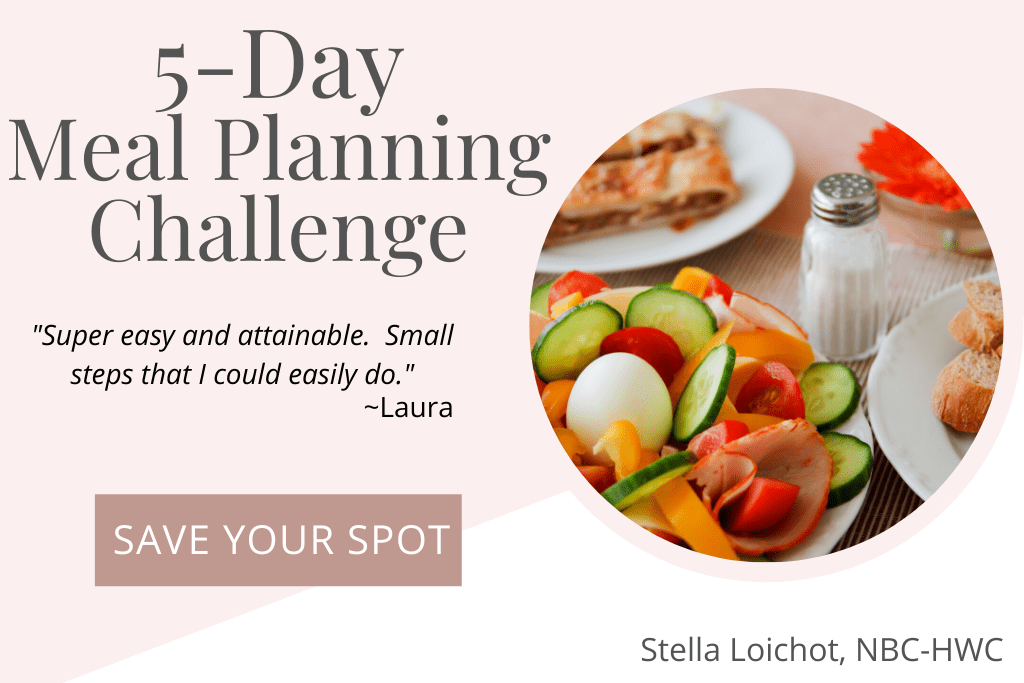Whether you have been worried about diabetes for a long time because it runs in your family, or have just been diagnosed with prediabetes, you might be asking yourself a lot of questions about nutrition. One of them most likely revolves around the idea of counting calories and macros.
I am glad you are thinking seriously about this and I will tell you what I think is the best way to handle your food.
Before we talk calories and macros, let's talk about your every day life.
Is it important for you to have a good work/life balance? Or a nice harmony between “me-time” and the demands of others? My guess is, YES, it is vital to you! And yet, to achieve that, you probably don’t record every minute of your time and what it is dedicated to? Or do you?
Having a healthy work/life balance does not mean counting and writing down the time spent playing a board game with our kids, or sending an email to our boss. By the same token, having a nice balanced food intake should not require counting every calorie and nutrient.
At least not on a permanent basis.
A balanced diet is like a balanced life
If you had to time everything you did and make sure all the moments of your day are equally distributed among different areas of your life, it would get extremely complicated and exhausting. Actually, your existence would quickly turn into a living hell! You would see it as a chore, and most likely become resentful.

Instead, you probably have a pretty good idea of what balance means to you. How many hours you approximately spend at work, what you usually do on weekends, how long you generally sleep, etc. You have a “frame” and you evolve within that frame year after year, incorporating new jobs, new people, new places...
Healthy without “knowing” it
If we want to establish healthy eating habits, we have to look at food the same way we look at life. Unless we have a specific condition that requires it, we don’t need to monitor calories and nutrients closely. Instead, it’s important to step back and look at the bigger picture.
Rather than studying macros and calories in every part of our meals, let’s focus on what makes us feel better, what brings us the most energy, and very important too, what brings us the most enjoyment and happiness. I am not talking instant gratification here, sugar rush, quick fix. I am talking profound and lasting satisfaction.
As in “I feel good in my body” and “my body allows me to do the things that matter to me”.
A strong frame for more freedom
To make sure we establish a healthy and balanced food intake that is not going to be jeopardized every time we go out with friends or are stressed out at work, we have to have a structure. Just like we have one for our balanced life. A structure that guarantees a healthy lifestyle, but also gives us enough freedom to enjoy our food and life without questioning every choice we make.
Once we have a frame for our eating habits, we can forget about calories and macros. We can start focusing our energy on everything else in life. Isn’t that what we all want?
When you are creating your model for healthy food intake, that’s when counting macros and calories, TEMPORARILY, can come in very handy. It’s not required, but for certain people, it is helpful. Counting for a week is usually all it takes. Most people get all the information they need by counting just for a few days. It creates awareness and helps you see the gaps in your knowledge or mindfulness. Counting calories for weeks and weeks on most often doesn’t make much sense. UNLESS you enjoy the control and focus it gives you over your food, and that’s totally fine too! Whatever works for you!
Everyone's model will be different. We don't like the same foods. We don't have the same level of activity. And our needs are different. If diabetes is a concern of yours, you probably react to sugar and carbs differently than your neighbor. Although in the US, 1 out of 3 adults has prediabetes, and 90% don't know it. So chances are that one of your neighbors actually has the same issue!
When I work with clients, building this healthy frame is our first step toward a new lifestyle. If you want to know more about such a frame, follow this blog, I will definitely write more about this topic. But if you are eager to start building a strong structure for yourself right now in order to help prevent diabetes, reach out to me and I will give you a few tips on how to get started. You can request a Complimentary Consultation with me. If I believe I can help you, we schedule a meeting.
In the meantime...
Start with this!
The very first thing I recommend is to fill your plate with REAL FOOD, coming mostly from plants. And make sure there is always plenty of non-starchy vegetables and a lean protein such as eggs, fish, poultry. If you do that, you won’t have to worry much about nutrition facts and food labels. Unless, again, you have a medical condition that requires it. It seems quite simple, and it actually is! Real food – as in unprocessed or very slightly processed - has what we need to fuel our body. So let’s start eating it!
If you want continuous support with your health goals, join my Facebook Group. You will have access to weekly tips, challenges, strategies, and lots of FREE resources to support you in your health quest.

